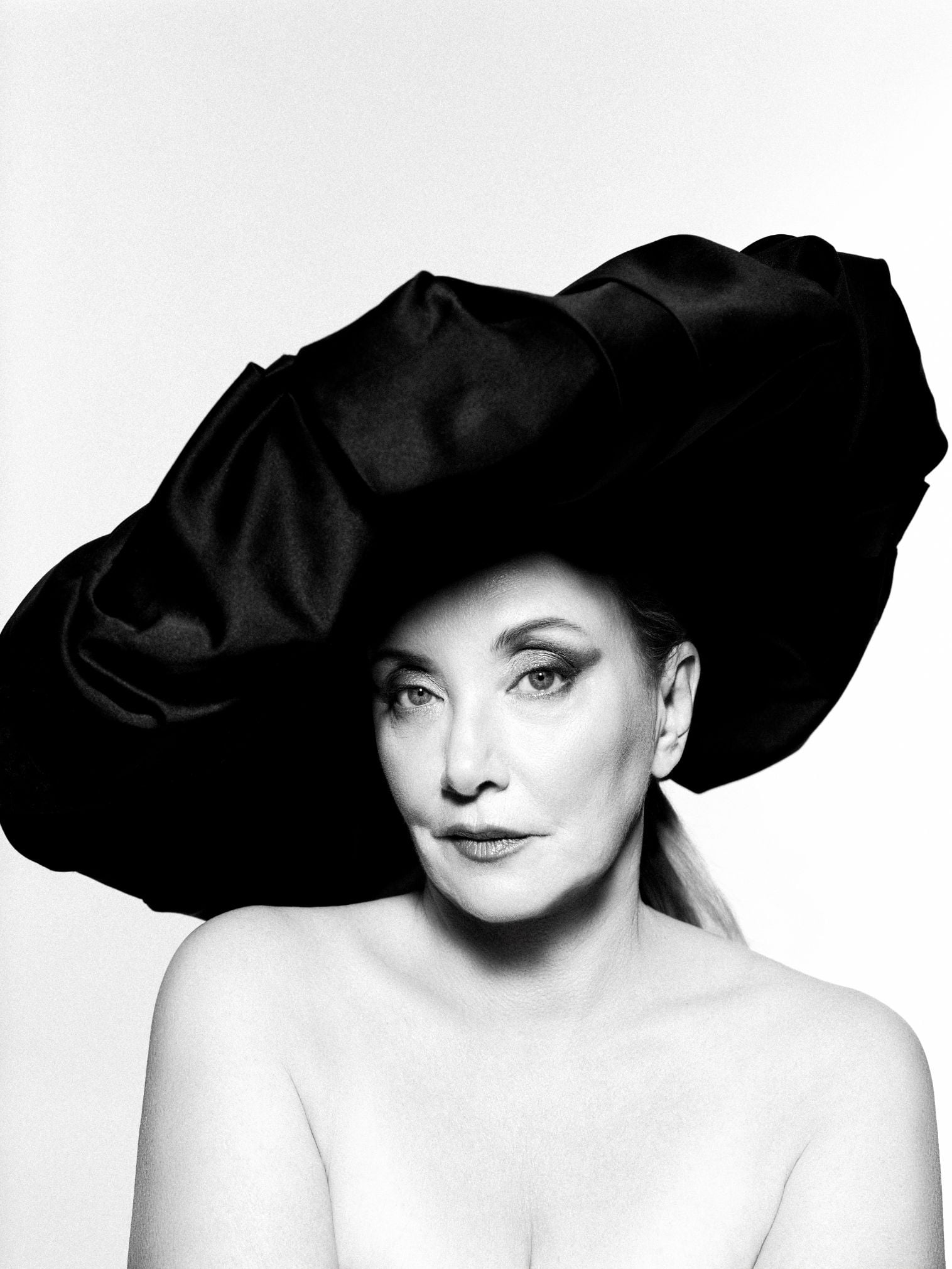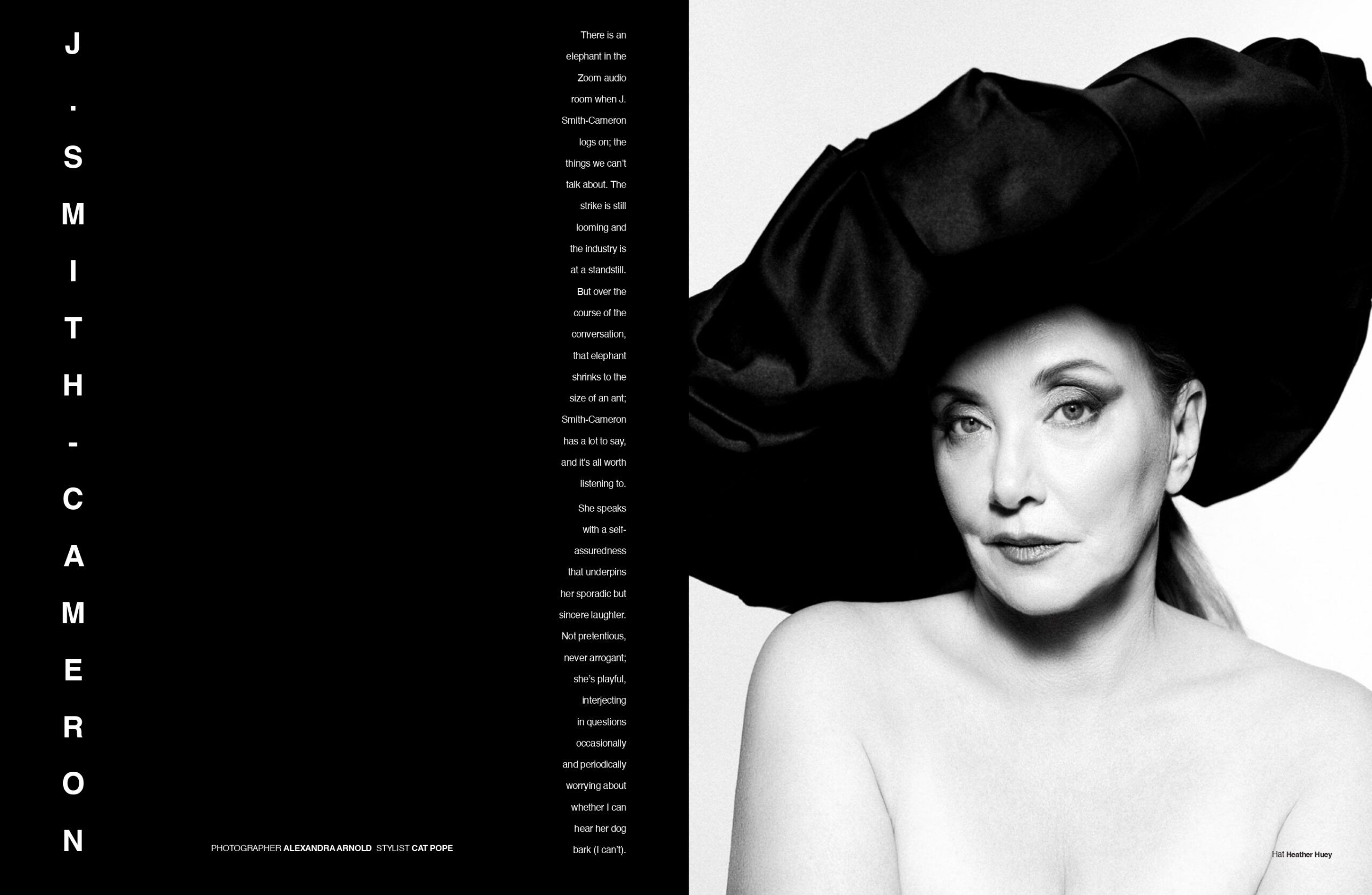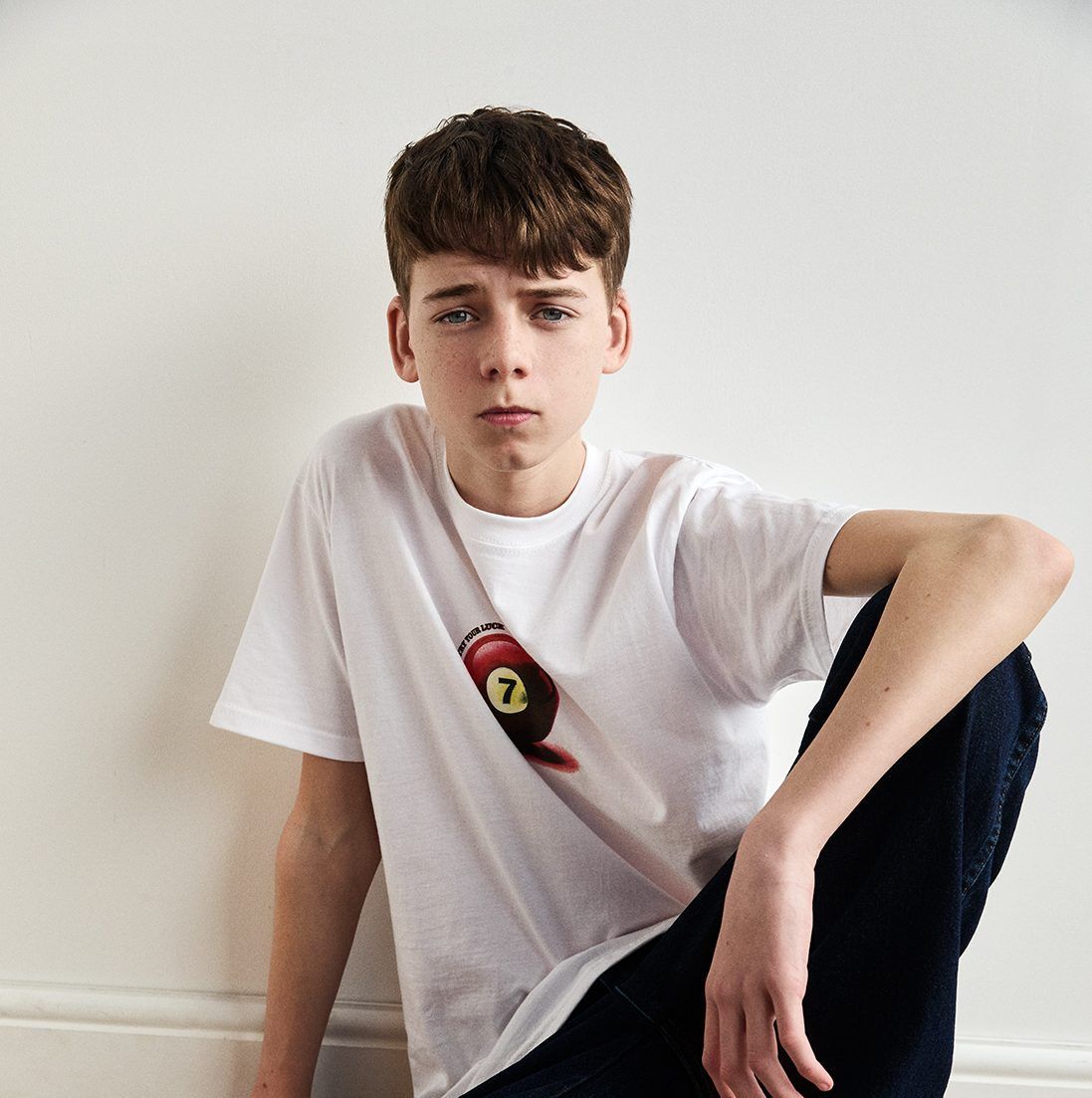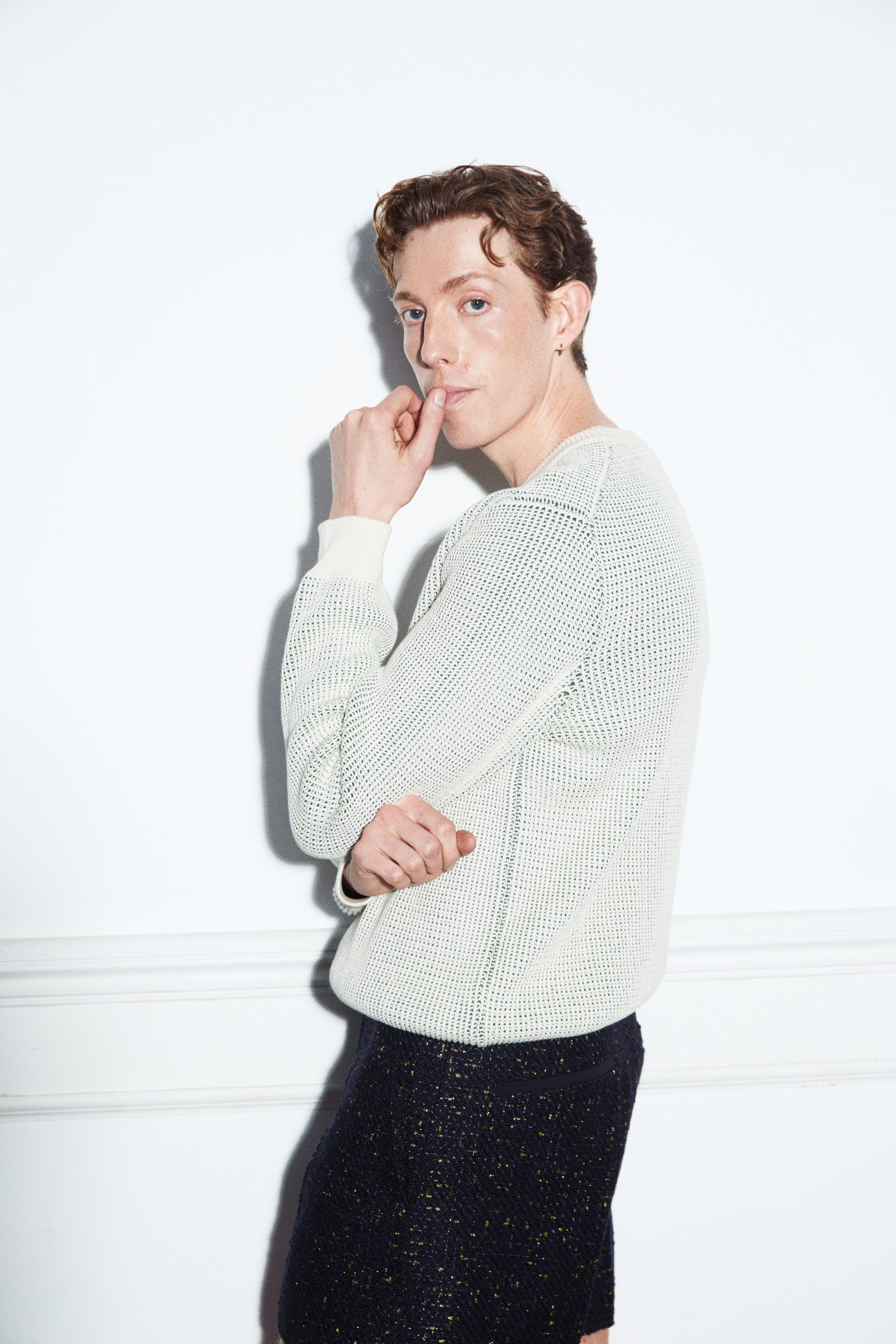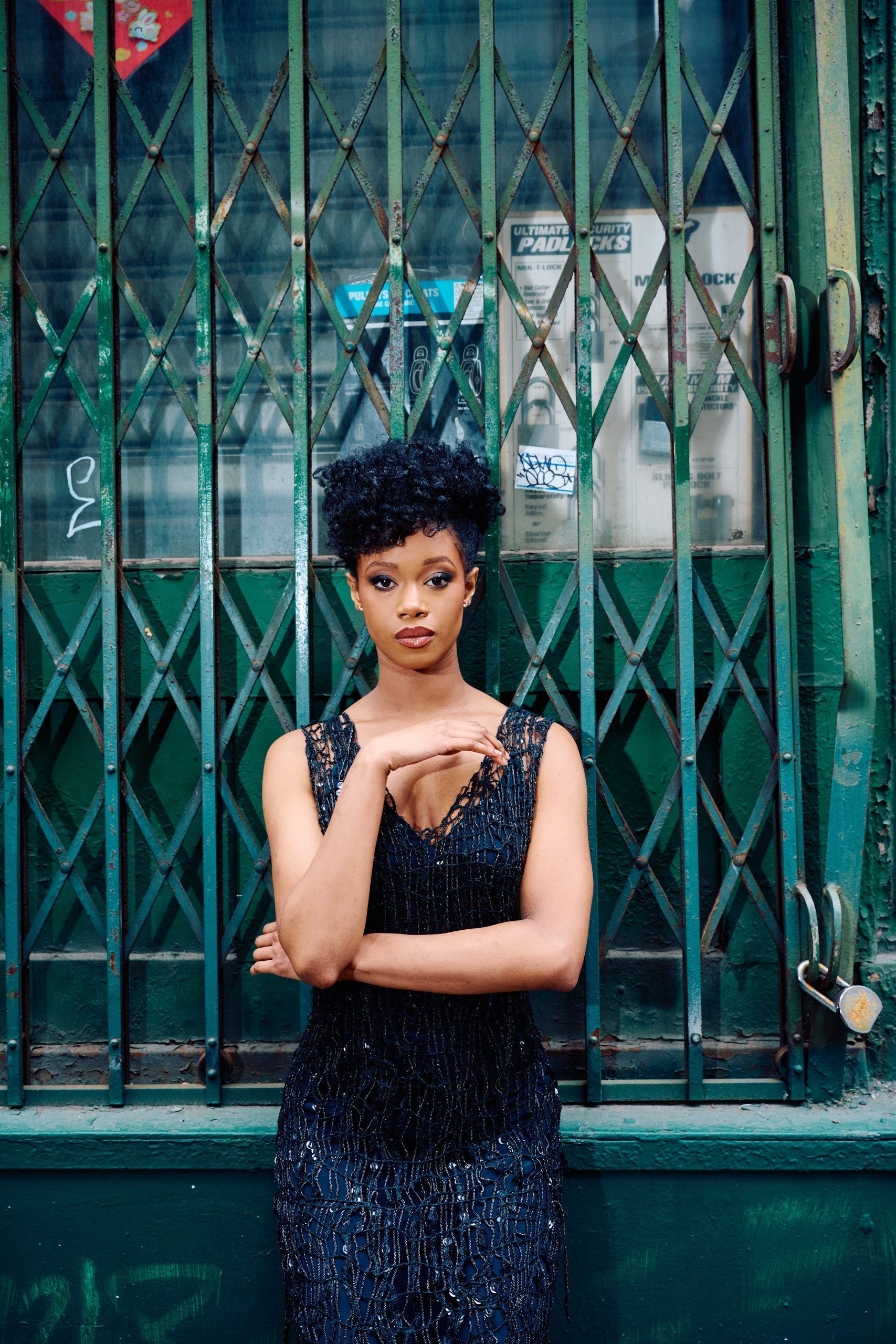There is an elephant in the Zoom audio room when J. Smith-Cameron logs on; the things we can’t talk about. The strike is still looming and the industry is at a standstill. But over the course of the conversation, that elephant shrinks to the size of an ant; Smith-Cameron has a lot to say, and it’s all worth listening to. She speaks with a self-assuredness that underpins her sporadic but sincere laughter. Not pretentious, never arrogant; she’s playful, interjecting in questions occasionally and periodically worrying about whether I can hear her dog bark (I can’t).
Smith-Cameron graciously spares far more than our allotted time, weaving not only a chronology of her career — from early plays to later successes — but also her personal growth. Smith-Cameron explains how her stylist awoke in her a sense of glamour through clothing, delves into the politics she’s passionate about, and reveals the slow build-up of moments that led to her knowing she had made it.

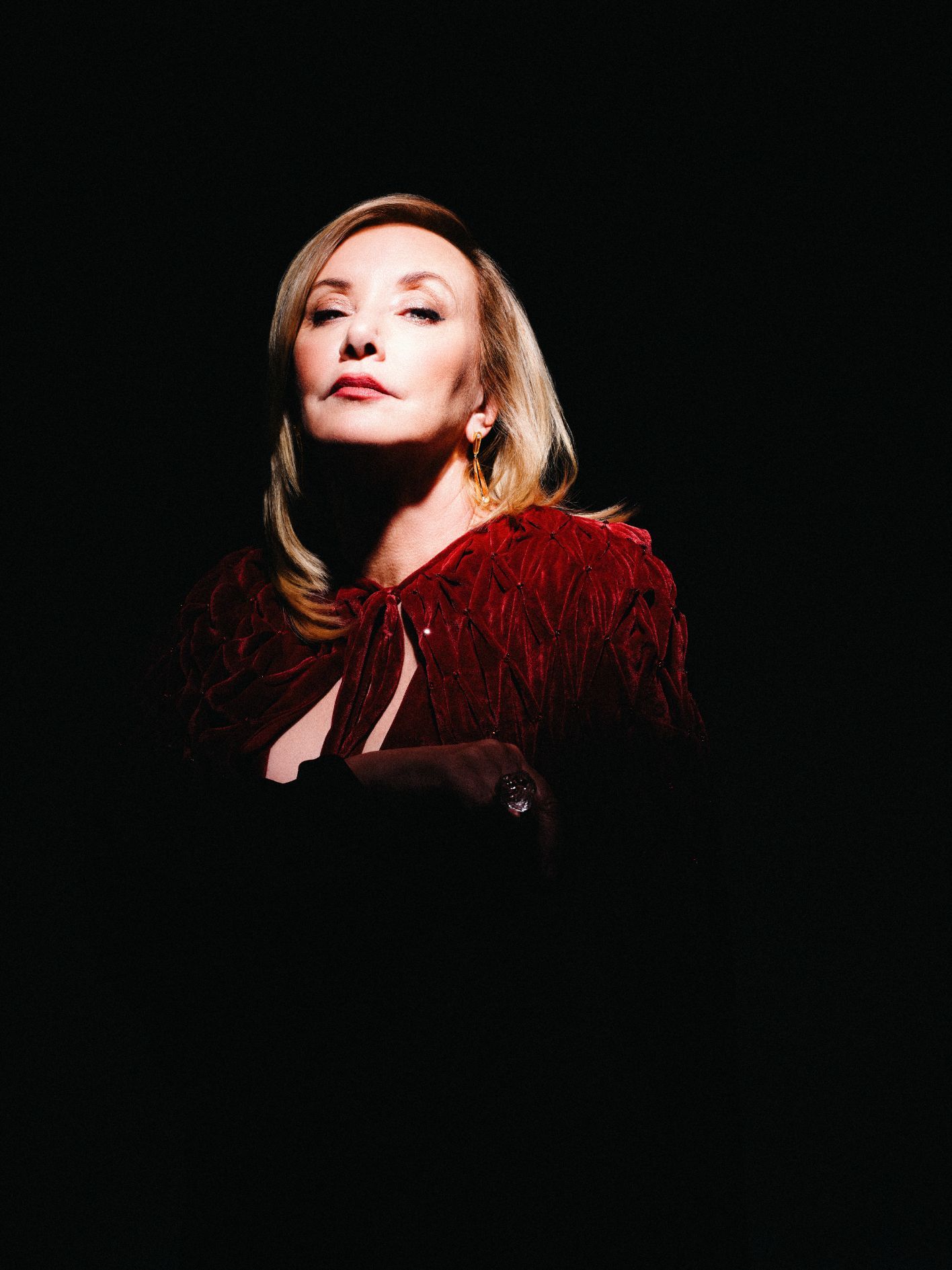 dress and cape Dennis Basso Dress earrings and ring Yael Sonia bangles Ritique
dress and cape Dennis Basso Dress earrings and ring Yael Sonia bangles Ritique
Click to download the full PDF of this interview.
What are some of the most important things that doing stage acting, as opposed to on camera, has taught you?
The great thing about theatre is that you rehearse for several weeks, and you don’t have an editor picking and choosing the take, or choosing where the focus of the scene will be. We can’t just cut to the person who’s just silently watching. Everyone on stage has to be generous with each other. If something busy is going on on stage-right, but someone on stage-left is very still, their reaction needs to be clocked by the audience — everyone has to solve that problem.
It’s a little bit like playing chamber music. [Stage actors are] throwing the ball back and forth, which doesn’t get reinforced [by a] camera. I think an actor’s job is to make every take spontaneous and fresh. That you learn in the theatre, because you have a show every night. You repeat it every night. And you have to newly mint every line, every revelation your character has, every night. So there are certain disciplines that you do learn from the theatre that are easier to learn there. I think that is definitely in my toolbox as an actor.
But the biggest tool an actor can have – or the biggest gift an actor can have – and it’s partly learned and partly innate, is empathy. Because if you’re playing a character, and maybe they’re disagreeable, your job is to get in that person’s head and represent them. It’s the thing at the root of what makes an actor an actor.
And empathy doesn’t mean justification.
Absolutely, [as an actor] you don’t get into judging it. The judging, that’s for the audience if they want to do it. You’re trying to understand why would they feel that way? Or how did they come to feel that way? Or why are they acting that way? And it’s a little detective work. Good actors have a sort of curiosity.
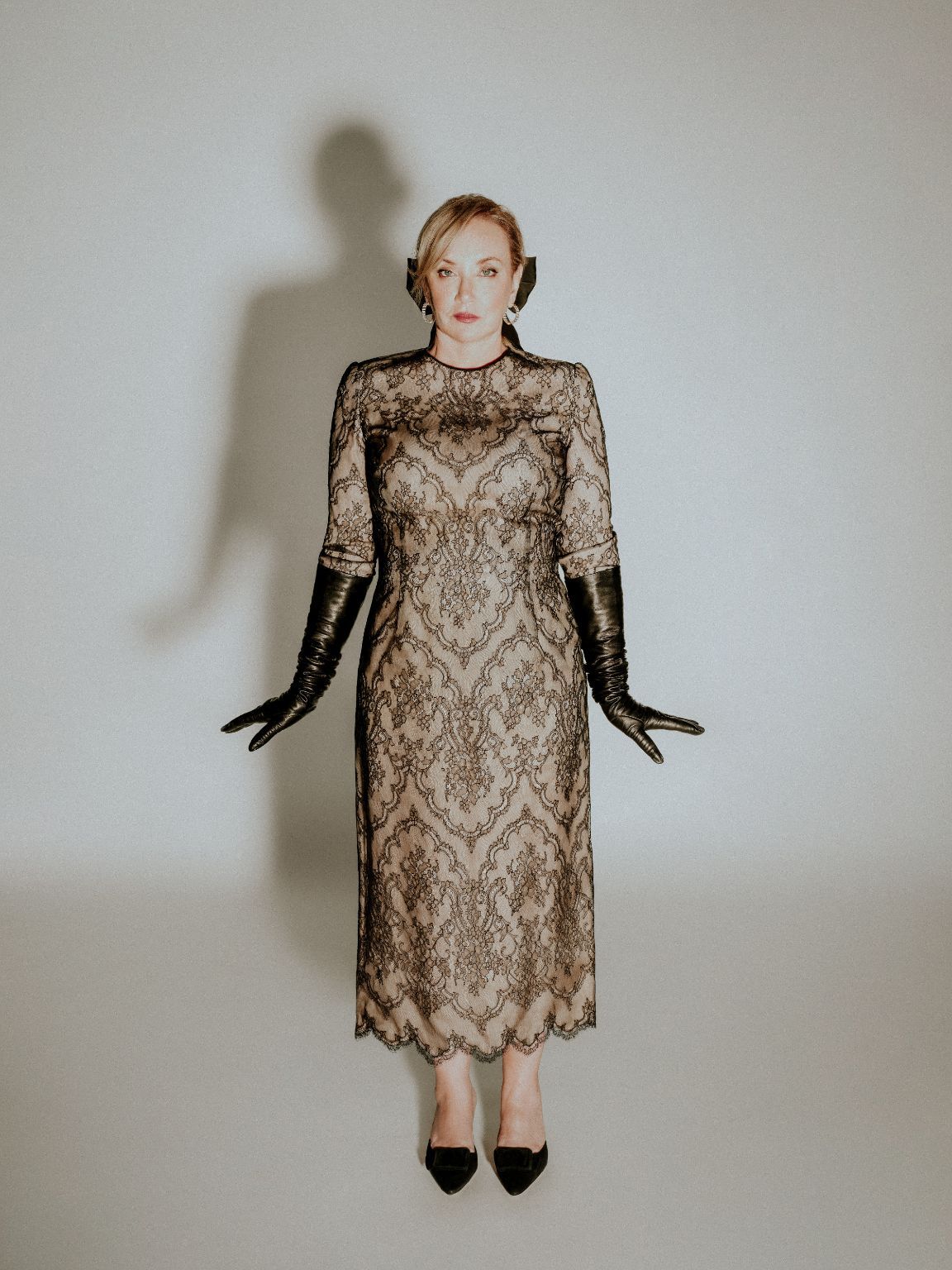
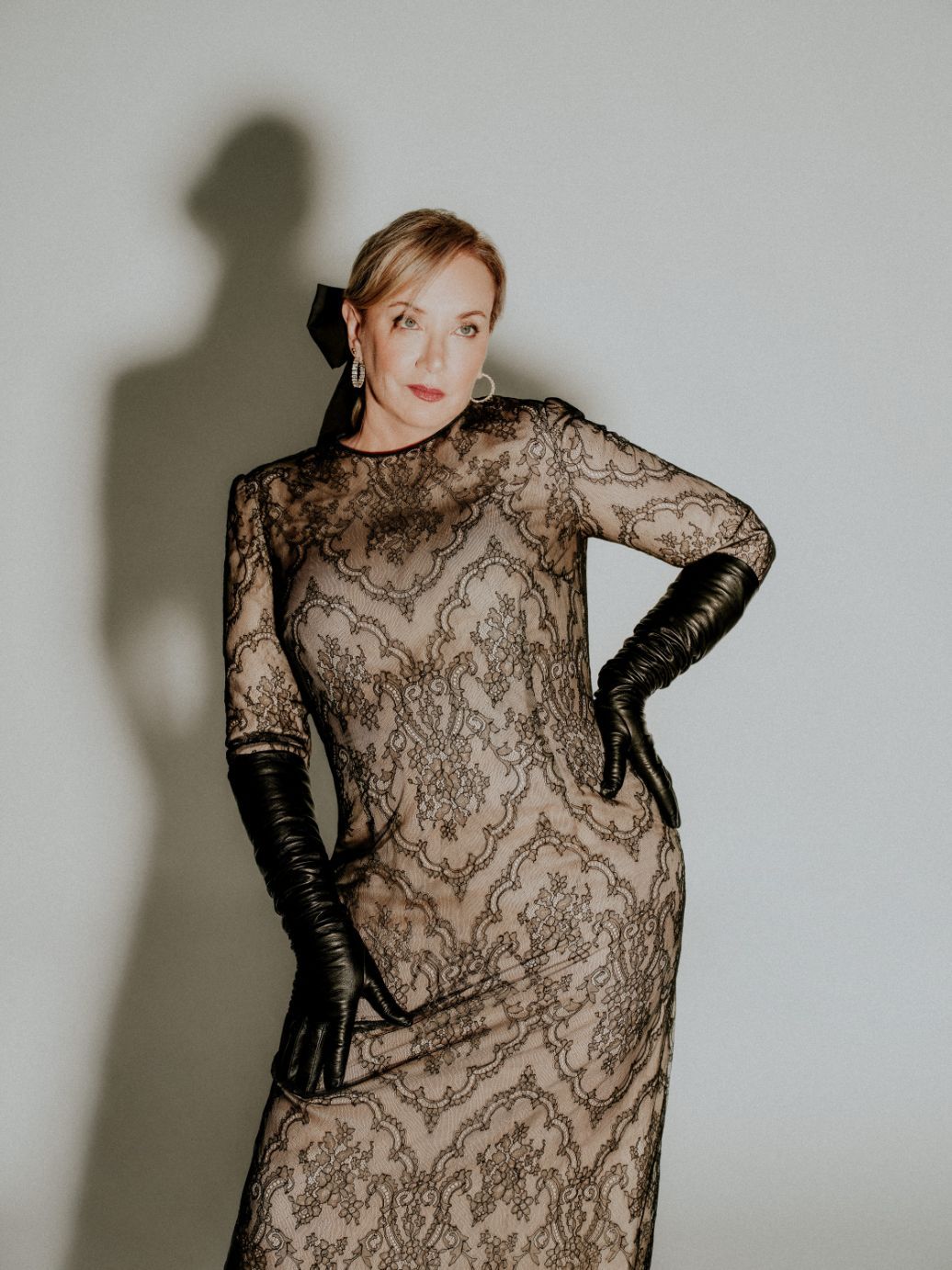 dress Dennis Basso gloves Sermoneta shoes Manolo Blahnik earrings Nickho Rey
dress Dennis Basso gloves Sermoneta shoes Manolo Blahnik earrings Nickho Rey
Do you find yourself using those acting tools, that empathy and curiosity, in your activism with The States Project?
In the despair following the 2016 election results, I went through a lot of angst about how to help think or how to make a difference. The States Project came to my attention through a friend and it was kind of a new concept to me.They strategically analyse state governments for what can be flipped to a Democratic agenda, covering all the things that humans care about that are decided on a state level: abortion bans, gun control, education, LGBTQ rights, literally, you name it.
So, in terms of activism, I think [those skills] go hand in hand because actors and writers do tend to have a penchant for being able to imagine how someone else feels — that’s a skill that usually makes those people want to do those crafts in the first place. And that is similar to being an activist, at least for the Democrats. Because that’s the party that feels some responsibility for your fellow man. Rather than like, ‘hey, every man for himself.’
How do you manage the sort of tension inherent in being someone with a high degree of visibility engaged in activism and your own sense of self and privacy?
I’m kind of sensitive to it. I don’t think it’s a great look to have Hollywood — I’m not Hollywood, but I live in New York — but you know… the Hollywood liberal look is not my favourite thing. And not just because the right wing has decided that there’s this ‘Hollywood elites thing’. So, if somebody really wants to fight with me on social media, I just walk away.
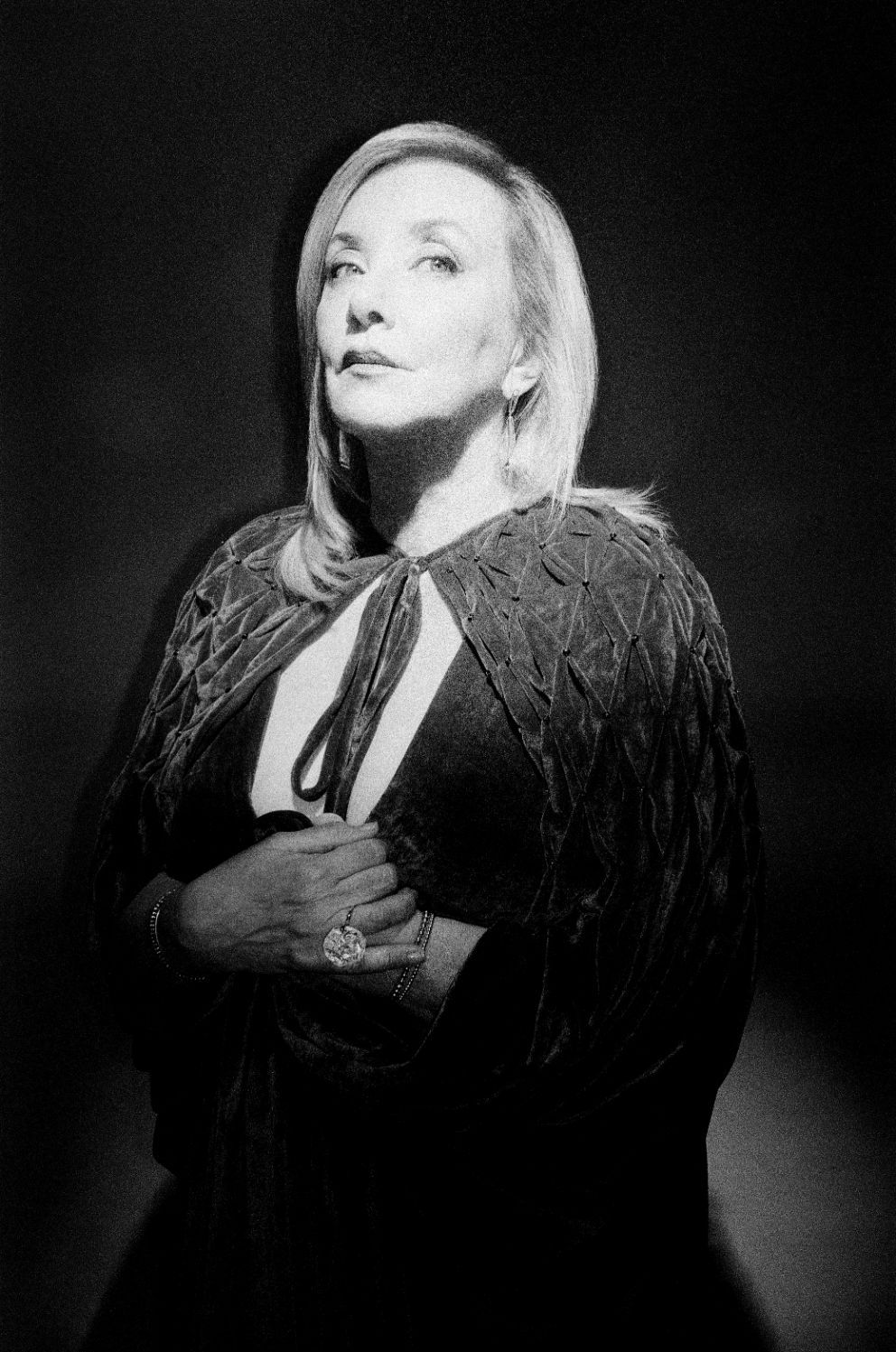

dress and cape Dennis Basso Dress earrings and ring Yael Sonia bangles Ritique
Speaking of social media, there are some great fashion photos on your Instagram. When you share those, do you ever feel any sense of bucking the notion that as women age, they’re meant to dress certain ways?
I wasn’t consciously trying to advocate for older women but I like that idea.I don’t think of myself as being older or younger. I’m just always me, [laughs] moving through time. There are decades I feel younger than decades that have already passed, so I don’t really think of it that way.
I guess it’s about the intention when you get dressed – whatever age or mood you feel in that moment – and thinking about that, are there specific outfits or styles that you wear when you’re ‘J on the red carpet’ vs Jean at home?
Oh, definitely. When you’re at home it’s about which garment items you really value, maybe because they’re comfortable or because of the way they hang on you, or they are consciously more cheerful. One thing I should back up and say is that in my career as I’ve started going to events and doing more press, Amanda [Smith-Cameron’s agent] hooked me up with a stylist named Cat Pope. In the past, if I have dressed myself for a talk show or a premiere, my number one thing would be ‘Well, is this flattering and appropriate for me?’ Not necessarily age-appropriate, but I check my taste against the reality of, ‘Does this suit me? Is this a good look for me, can I pull this off?’ And Cat was always, in a very relaxed way, pushing the boundaries with me; for some reason she just saw me as glamorous.
I mean, certain characters I have played have not been glamorous, but Cat always just saw me as glamorous and voluptuous. So even sometimes when I was [concerned about my weight] she’d be like ‘nonsense. You’ve got a beautiful body and you’re a sex symbol, and you should just go for it.’ And I would think it was funny, but her confidence was infectious, and it became really fun.
So, that was really an epiphany for me to think that I could wear these things. Not so much because of my age, just I’ve always been that way. Like ‘I really like that thing but I’m not sure my arms look good enough, I don’t know if my waist is right for this.’ All those kinds of concerns had encroached on me over time, so I made those kinds of judgments rather than [choosing] things I thought were pretty or sexy or exciting. And Cat always puts me in these dramatic, glamorous and sexy kind of clothes. It’s just one of the cool little things that came along the trajectory of my career. So now, a fun or funny take on glamour appeals to me. I like jewellery and drama and sometimes, partly because it’s pretty and partly because it’s fun, I’ll wear pyjamas to something. Or I’ll wear something with feathers or something that’s a little nod to being an actress. That kind of thing really appeals to me. In my mind, it’s sort of witty. It’s kind of like I’m maybe a 65-year-old woman but I’ll dress in something really fun – like I live on Sunset Boulevard!
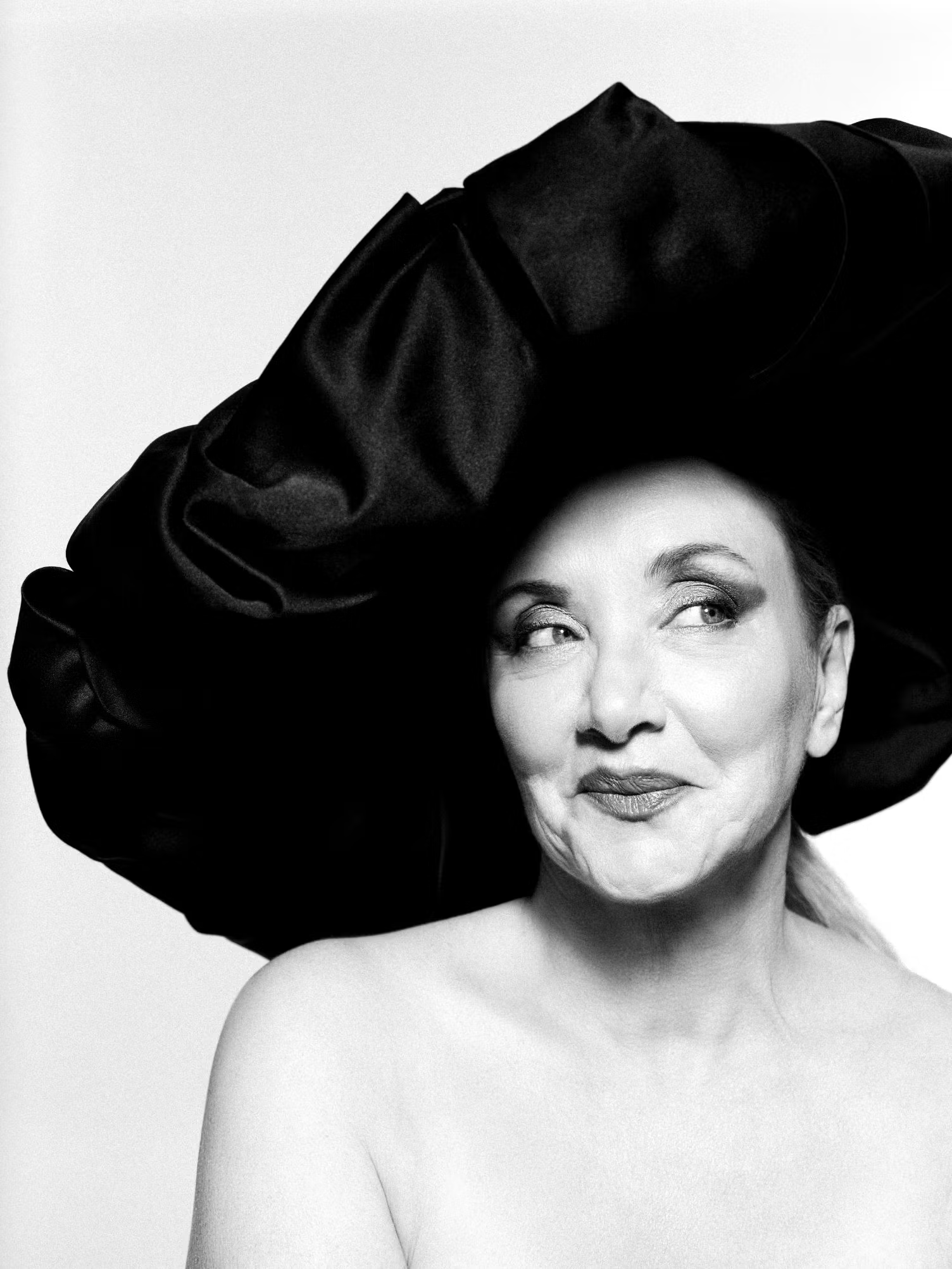 hat Heather Huey
hat Heather Huey
Having learned this confidence through your stylist, do you consciously try and impart those lessons to your daughter?
I am not allowed to try to impart anything! She’s 21! But maybe by osmosis or maybe because we are similar deep down, but she’s very much herself and very true to herself about her looks. She’s very inventive about dressing and has never been one for following, but I don’t think I can take any credit for that. She’s just her own person – maybe we have some chromosome in common there or something.
Thinking back on your career, was there a role or a moment where you were like ‘yes, this is the path for me’
I don’t think it was a single one. The first part I ever played was Anne Frank in The Diary of Anne Frank in high school. And that’s such a great part in such a beautiful story. Ever since I started acting, I enjoyed it so much, and I got some positive feedback for it — one thing led to the next thing. I was just looking for anyone who would hire me and I did not have grand expectations at all. I just wanted to be able to do what I loved.
And I think that is another reason, to connect back to the strike, why you need a union for actors and writers because most artists will just do it for the love. They will do it for nothing if they can afford to. And that’s exploitation because others are making fabulous amounts of money off their work, so there’s no reason to justify why they the creatives shouldn’t be paid proportionately. They do take advantage of the fact that actors will want to do some great scripts, even if it pays very little. That’s why it’s important to not let them take advantage of the fact that these are people who actually love their work.
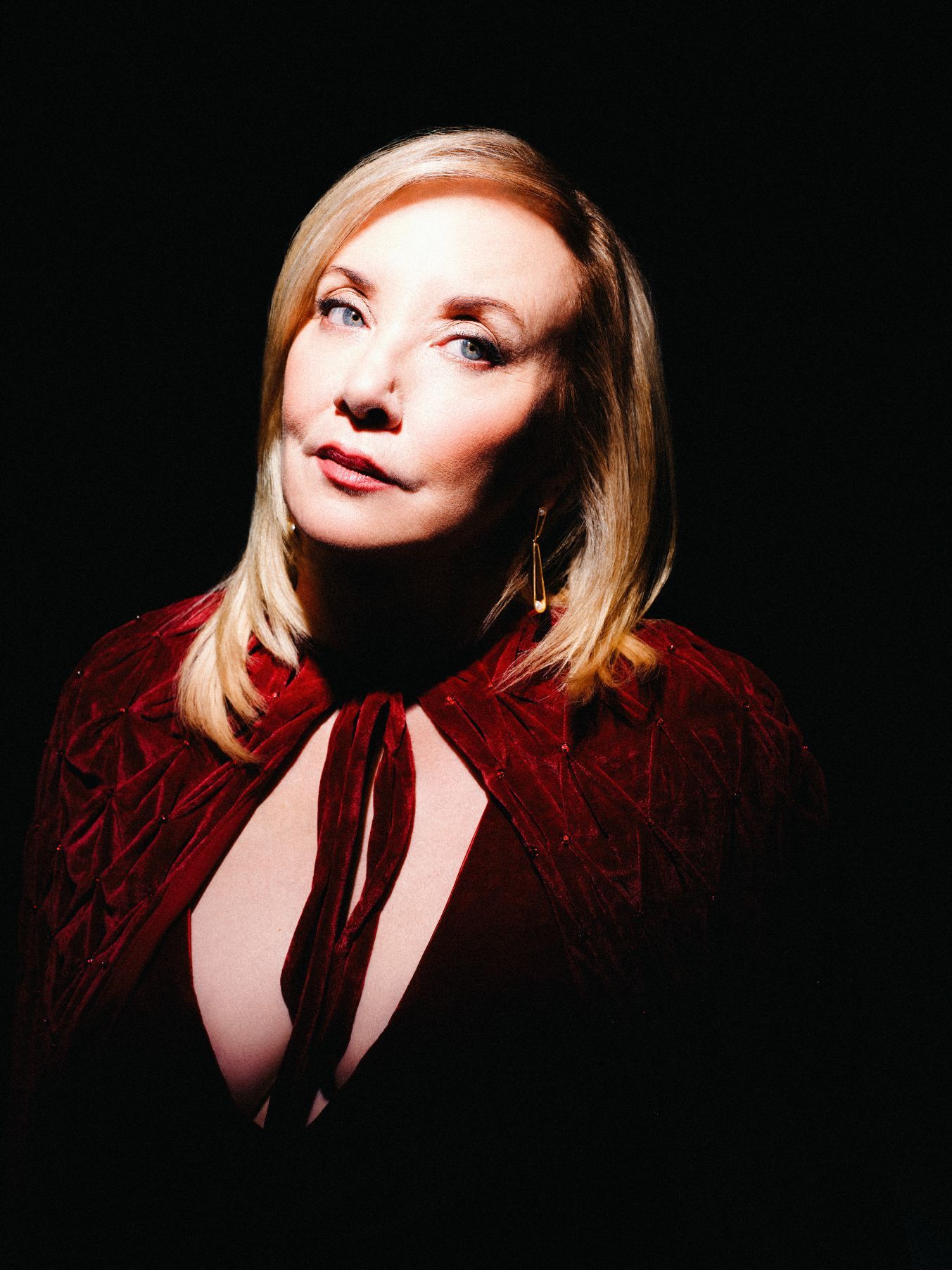 dress and cape Dennis Basso Dress earrings and ring Yael Sonia
dress and cape Dennis Basso Dress earrings and ring Yael Sonia
And, something being touted by those who oppose the strikes is ‘why are the biggest names in Hollywood out striking – they obviously make millions.’
I’m glad you mentioned that because that’s exactly what I wanted to talk about. The big stars who are not worried about money are striking because of their visibility, so the strike stays in the news. If you watch any TV show, it’s loaded with supporting characters and guest stars, and these people do not make the same rate. So the negotiations have to do with those rates and the exploitation of those people.
Also what a lot of these big stars, and medium, regular stars, are doing is donating to fundraisers for people who are suffering the most financially during the strike. That’s what I wish [the media] would give equal time to is that a lot of these more visible stars are busy trying to use whatever visibility they have for good. They’re trying to raise money for relief for the people that the strike is mostly about. I think there’s a myth that you’re either Meryl Streep, or you’re a fool with a pipe dream. You’re either not really successful as an actor, or you live in Beverly Hills by a swimming pool which is just not the case.
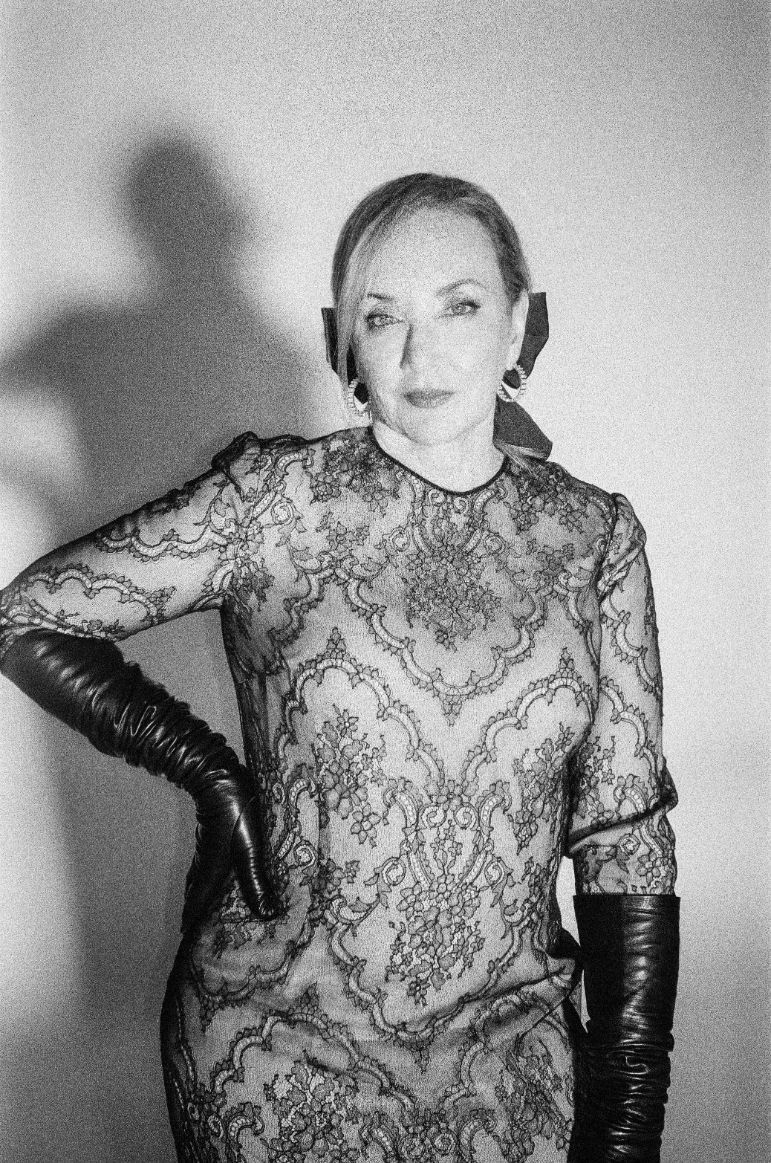 dress Dennis Basso gloves Sermoneta shoes Manolo Blahnik earrings Nickho Rey
dress Dennis Basso gloves Sermoneta shoes Manolo Blahnik earrings Nickho Rey
When you left college to pursue acting as a career, what was it that convinced you that it wasn’t just a pipe dream? That you had what it took to achieve a career as an actor?
I discovered acting in high school and it was very clear to me that this is the thing I was best at, and happiest doing. It was never my goal at that point, It’s never been my goal… I’ve never thought of acting as a way to get rich or famous. So that’s first of all. I don’t mind feeling comfortable financially, but I don’t care about being famous and I never have really.
I did have talented friends who were like ‘I’m gonna give myself five years to be on a TV series or have a movie career and then I’m just gonna look for something else. I’m either there or I’m nowhere’ and that was never me. I always wanted to be someone who got to do new plays and interesting, challenging things.
But the thrill of being able to do something you love and be able to make your rent and buy your groceries was so appealing to me. I had sort of almost a literary take on being an actor. My tastes were always towards ‘What was the writing like of something’ and not even the size of the part, but whether the character and the writing appeal to me.
I dropped out of college because I started getting little jobs and I thought, I’ve got to follow that trail because there’s no systematic way for an actor in this country to pursue their career. You can do acting classes and the most you can hope to get from that is some actual craft. But you’re not going to get any job because you studied with X, Y or Z. I mean, if you go to one of the prestigious acting programmes I think that helps, in the beginning, to connect you to agents. But aside from that, you don’t need a degree to be an actor. You just need to be good at it and tenacious.
It doesn’t hurt if you’re well-connected or fabulously attractive. But what really comes down to it is: are you going to be interesting and believable and watchable? And are you tenacious enough? Because you can get a great job and make a splash but then you’re back to zero. So it’s kind of like being a hunter-gatherer, actors are always starting anew. You have to go out and get your food. You’re always starting over, and that takes tenacity.
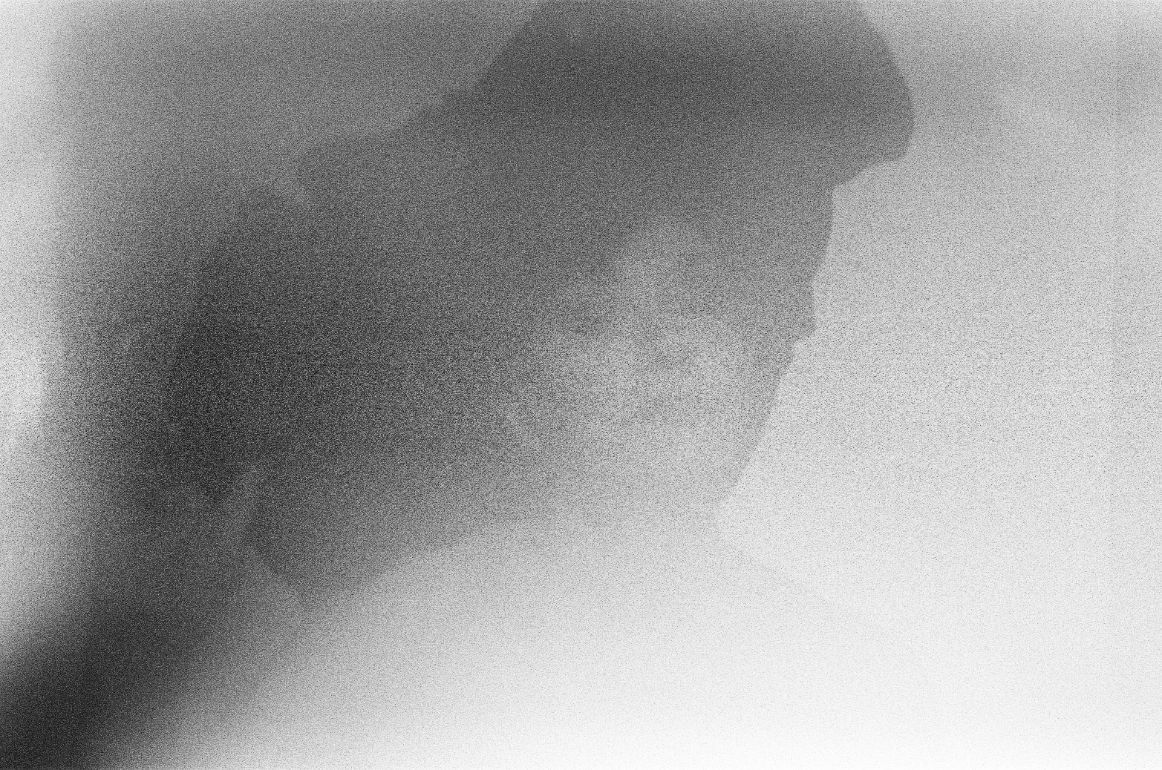 hat Heather Huey
hat Heather Huey
Check out The States Project to learn more about their work.
Interview Gabriella Geisinger
Photography Alexandra Arnold
Talent J. Smith-Cameron
Styling Cat Pope @ The Wall Group
Hair and Make-Up Chelsea Gehr @ Exclusive Artists using Westman Atelier
Photography Assistant Sarah Gardner
Styling Assistant Madeline Nelson
Special thanks Andrew Coppa Studios
Feature image: hat Heather Huey

